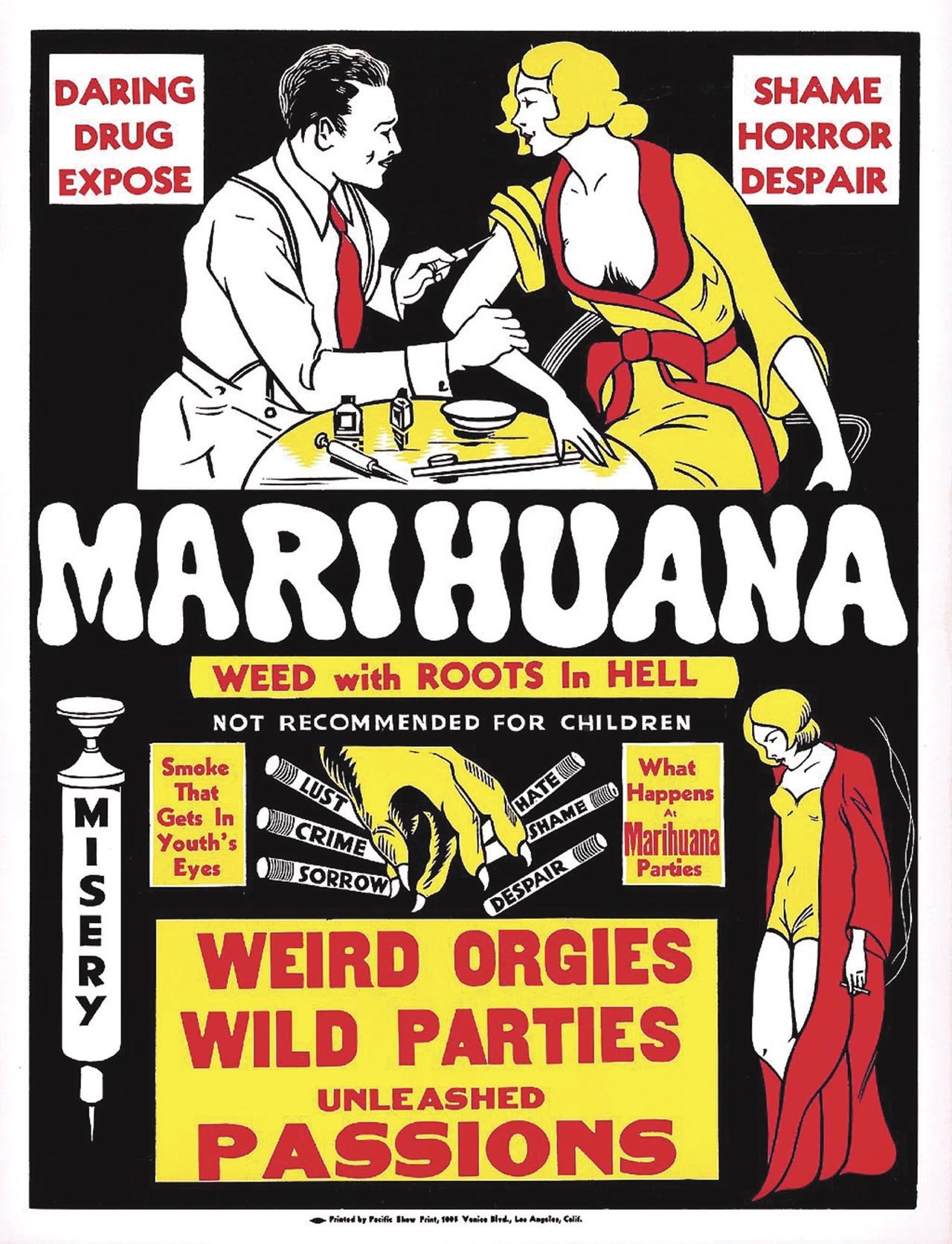
Pot. Grass. Weed. Marijuana. It all means the same thing: You smoke it, and you get high.”
So began a bit on the 1972 National Lampoon comedy album Radio Dinner. It was a perfect spoof of that era’s (or any era’s) moral panic over pot. Read in a Rod Serling voice (and, later on the record, in a Gomer Pyle voice), it was a perfect sendup of the anti-drug PSAs that would often air on AM Top 40 radio back then, between spins of “Daddy Don’t You Walk So Fast” and “Brandy.” The PSAs tried to make pot seem super-scary, but always either lacked specifics or relied on dubious claims. The NatLamp bit ended with the warning that pot had been found to lead to hearing loss, and so it “might not just make you stoned. It might make you stone deaf.”
But look again at that litany of monikers. Nowhere to be seen back then, either there or nearly anywhere in discussions of pot, was the word “cannabis.” Even though most people who knew anything about pot had heard the term, almost nobody used it: not prohibitionists, not satirists, not the folks at NORML, and not pot smokers. It was generally confined to clinical settings, as in academic research reports, and thus it sounded fussy.
It still does, to veteran ears. But “cannabis” is now the preferred usage of both pro-pot political advocates and industry types. And like so much else in the pot world, it’s a sore spot for many. The move toward it and away from “marijuana” began years ago, but reached near ubiquity around the publication in 2015 of “The Cannabis Manifesto: A New Paradigm for Wellness,” by Steve DeAngelo, founder of Oakland’s famed Harborside cannabis dispensary. DeAngelo was hardly the first to relate the theory that “marijuana” (and the somehow scarier-seeming “marihuana”) was used by prohibitionists in order to alarm white folks by appealing to their racism, but his arguments in that book got a lot of traction. “Marijuana,” the theory goes, sounded Spanish (meaning “Mexican”), and thus dangerous.
The trouble with this whole discussion is that nobody is clear on the etymology of “marijuana” (theories abound), although it seems to have emerged as slang south of the border in the 19th century. Before prohibitionists and others started using the word in the 1930s, pot was referred to most often as “cannabis,” by the relatively small number of people who even knew what it was (that group included the pharma companies that sold cannabis, perfectly legally, as relief for ailments such as insomnia and headaches.)
The chief prohibitionist at the time was Harry J. Anslinger, the head of the Federal Bureau of Narcotics, who pushed for, and in 1937 won, a federal law banning cannabis. To do so, he told all kinds of ridiculous, often racist lies, such as that pot use among “Negroes” turned them into violent rapists. Whether he decided to push “marijuana” for propaganda purposes isn’t known for sure, but it’s perfectly believable. Even at the time, it got a little pushback. As DeAngelo noted in his book, Dr. William C. Woodward, the legislative counsel of the American Medical Association, took exception to the term. “I use the word ‘Cannabis’ in preference to the word ‘marihuana,’ because Cannabis is the correct term for describing the plant and its products,” Woodward said. He called “marihuana” a “mongrel word” that “is not recognized in medicine.”
The case for “cannabis,” then, seems pretty solid, but where does it leave us? In recent decades, nobody really had a problem with “marijuana” until theories about its use for propaganda began to spread. And there are groups and publications all over the place that use the word. One example is the Marijuana Policy Project, which lobbies to reform pot laws. Despite the change in attitudes, that group — which was founded in 1995, well before the debate arose — is sticking with the name. Oddly, the MPP issued a formal statement in response to questions. Ascribed to deputy director Matt Schweich, the statement reads in part: “[The MPP] is a known entity in the cannabis reform movement … and for that reason we have chosen not to change our name. However, we recognize that for many the preferred term is cannabis, and that is the word we typically use in our communications.”
Fair enough. Such is the risk of branding in a world where acceptable terms change all the time. The NAACP, after all, doesn’t issue a lot of press releases referring to the advancement of “colored people.”
All of this explains why pot advocates are for using “cannabis,” but people in the legal pot industry seem, if anything, even more insistent. That’s likely because “cannabis” just seems more neutral and less “druggy” than “marijuana” does, agreed Chris Walsh, founding editor of Marijuana Business Daily. “Cannabis sounds more professional and doesn’t have the same connotations,” he said. When he launched the publication more than nine years ago “the term cannabis wasn’t used that much.” These days, MBD uses the terms interchangeably, but “marijuana” seems to be slowly fading away. “Even consumers are saying ‘cannabis’ now,” Walsh noted. 












